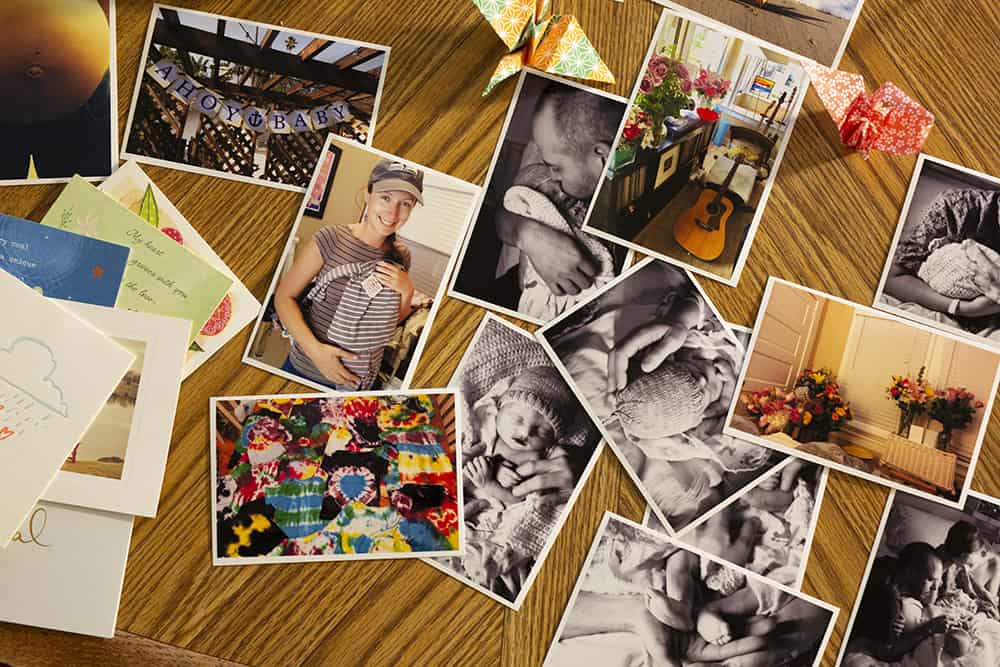
Mom Talk: The Slow Drip of Trauma After Loss
Written by Laura Malcolm
Photography by Photos Courtesy of Laura Malcolm
October is Pregnancy, Infant, & Child Loss Awareness Month, and all month long we will be bringing you essays from mothers who have experienced this devastation first-hand. Today’s story comes from Laura Malcolm, the founder and CEO of Give InKind, and the mother of two living sons and one stillborn daughter. Her daughter’s death inspired the creation of Give InKind, which is on a mission to make support simple through life’s significant moments. Below, she tells her story of loss, alongside the “slow drip of trauma” she and others are experiencing right now due to the pandemic.
There are different ongoing themes in each one of my group texts. My college girlfriends talking about how to handle remote schooling and the trips we didn’t get to take this year. My local mom friends trying to squeeze in just one more distanced visit before the weather sends us indoors again for the long, dark winter. And for my fellow loss moms, it’s the trauma, and what makes this year so different. We’ve all been through the worst—the loss of a child. And since then, we’ve supported one another through cancer diagnosis, parent loss, moves, and job changes. But that one thing that bonds us is our experience with deeply traumatic events—and yet, that experience couldn’t prepare us for this year. This is different. This is the slow drip of trauma.
————
I’ve been through two of those earth-shattering, pull the rug from underneath you, life is now before and after, moments. The first, in my early 20s, when my father unexpectedly died of a heart attack. I was heartbroken, but quickly went into taking care of business mode. We planned a funeral, moved my mom, and I went back to work. My world was irreparably changed, but I could see the path without my dad.
The second time, though—the second time was different. I was 8 months pregnant, and my husband was across the country at his grandfather’s funeral. We had debated whether he should go, but since it was my first pregnancy and we still had a few weeks to go, we felt confident he could go for the weekend, or get back quickly if need be. I had plans on Sunday to spend the day watching football at our local home-team bar, soaking up those last days I could sit in a dark bar at noon, surrounded by adults. I woke up that morning feeling different, but not alarmed, because I wasn’t expecting anything to be wrong. They don’t prepare you for late-term pregnancy loss. What they do prepare you for are a bunch of misnomers: babies slow down as they “rest up” for birth, for example. So, that’s what I thought was happening when our daughter didn’t move that morning.
I took my time getting ready to leave, and started doing some of the tricks I’d do when I wanted to feel her move throughout my pregnancy. Lay on my left side, drink some ice water. Maybe I’m just hungry? I’ll get some orange juice on my way out. Ok, I think I felt something. Maybe? I still didn’t feel alarmed because we can’t fear what we don’t see coming, and continued to try all the tricks until I felt my first contraction at noon. I nervously called my doctor and let him know that I had both decreased movement and some regular contractions happening and was excited when he told me to come in. Worst case scenario, I’m having our baby today, and my husband isn’t here. I’ll never forget saying those words to my brother’s girlfriend, who decided to come with me at the last moment, as we pulled into the hospital. Worst case scenario.
It wouldn’t have mattered if they’d included the next few minutes in every baby prep book, nothing can prepare you. I jumped on the table, eager to find out when our daughter would be joining us—would I get wheeled into the OR like some movie, or be told to chill out in the hospital until she arrived? I thought through who would go get the bag I hadn’t yet packed, or put a carseat in their car, as the nurse adjusted, and readjusted the doppler bands on my belly. Thump-thump thump-thump thump-thump—oh that’s your heartbeat, not the baby’s. This is taking longer than it has before, and now they’re wheeling in an ultrasound machine.
————
You know those feelings you felt in February? Where things were starting to happen around the country—a case here and there, then a few more, then a nursing home outbreak, and some travel restrictions? We knew that things were going in the wrong direction, but we thought maybe we’d have to stay home for a few weeks. We stocked up on supplies, made plans for our two weeks cooped up with our kids. We made it all seem like an adventure during the day, while at night we stayed up too late going down rabbit holes on Twitter about how bad the virus could get. We didn’t know what lay ahead of us, because we had no context. We knew lots of people could get sick and die. We knew that things would be different for a while. We didn’t realize in February how our lives would irreparably change in the months to come.
————
When the on-call doctor came in, I could see the concern on everyone’s faces, but I couldn’t process the words coming out of her mouth. I’m sorry, there is no heartbeat. That was the moment my world split in two. Before, and after. My life will forever be before and after the moment those words were uttered by that doctor, like the scene in Sliding Doors when Gwyneth Paltrow misses the train. One moment I was a round, glowing first-time mother to be. The next moment, I was a wailing, bereaved puddle on the floor, crying for my baby, my husband, the life I’d had just minutes before.
When I left the hospital 48 hours later, clinging to a pillow in the dark of the night, I felt exactly the same as Chrissy Teigen: “Driving home from the hospital with no baby. How can this be real?” My husband tucked me into bed where I stayed for the next week. When I finally came out of the fetal position and unfurled my empty body into the winter California sun, the world looked different. I was surrounded by flowers, take-out meals delivered from around the country, and a mailbox full of sympathy cards. It seemed everyone that had ever known me was reaching out to let me know that I was loved, and I wasn’t alone. That outpouring of support was critical to me gathering the strength to face this new world.
————
It was in that text message chain with my fellow loss moms that someone mentioned the slow drip of trauma. In the more typical traumatic events that most of us have experienced, the moment happens—Your father died today. I’m sorry, there’s no heartbeat. You have cancer.—and your world immediately bifurcates. The shoe has dropped, there’s no other shoe you’re waiting for. Today, we’re all constantly waiting for what comes next. What we thought would be a few weeks of school closures turned into a scrambling to support millions of families with online, hybrid, or masked returns to another school year. Weddings, funerals, births of babies, all missed or watched online, because we thought surely things would be normal by the summer, by the fall, by 2021. We’ve given up making plans. There was no defining moment from which we can rebuild, because we’re still living it. And now, an election looms. Winter is coming. Moving forward after a traumatic event is hard enough—it’s impossible to get that strength to move forward when you’re still living it and so is everyone else around you.
————
After my daughter died, and I felt the outpouring of support, I wanted everyone to feel that way when they went through one of those big moments in their lives. I wanted to make it as simple as possible for friends, families, community members to show up for one another, and so I built Give InKind, a website for organizing support through all of the big moments in life. In 2020, we’ve seen it used for more situations than we could have imagined—take-out meals for families in quarantine and gift card trains and scheduled video calls for isolated seniors. Support is more important now than ever, and yet it’s easy to question whether we’re really deserving of that support when everyone we know is in crisis of some form or another. And so, for many of us, we are suffering alone. Haven’t seen our families in six months—drip. Don’t know when kids will return to school—drip. Public health issues as political swords—drip.
We’re all living through this slow drip of trauma that is 2020. And now more than ever, we need to ask for help, and we need to show up for one another.
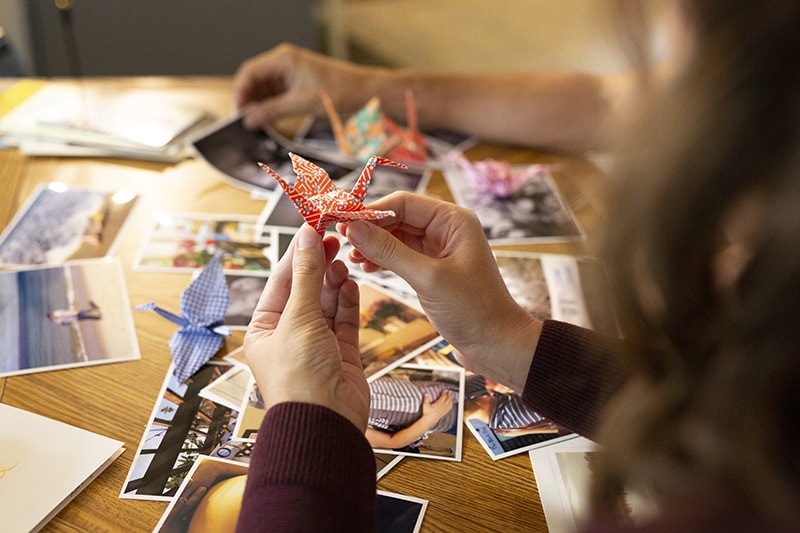
Are you a mom with something to say? Send us an email to be considered for our “Mom Talk” column.
Leave a Reply to anonymous Cancel reply
Share this story

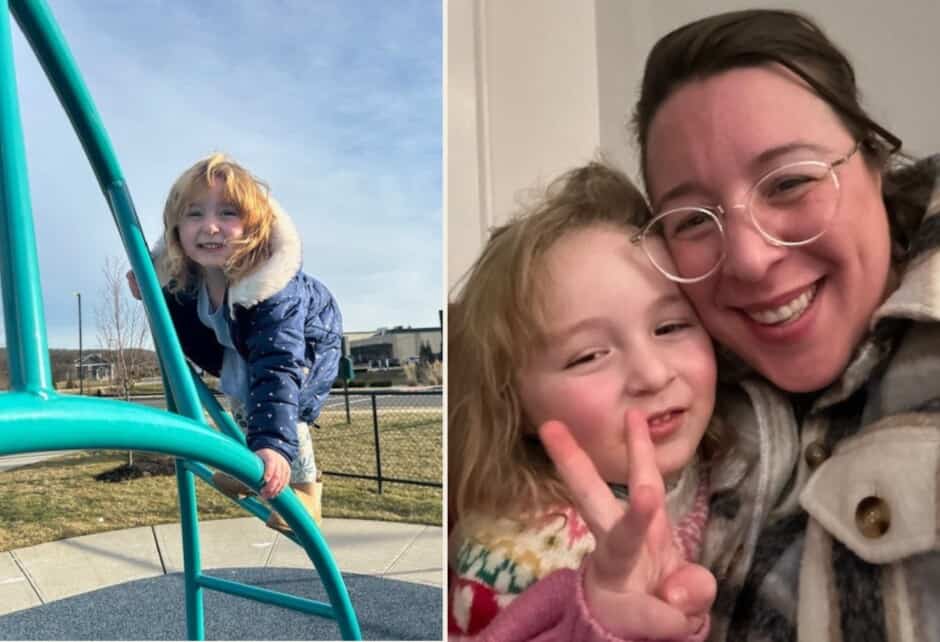
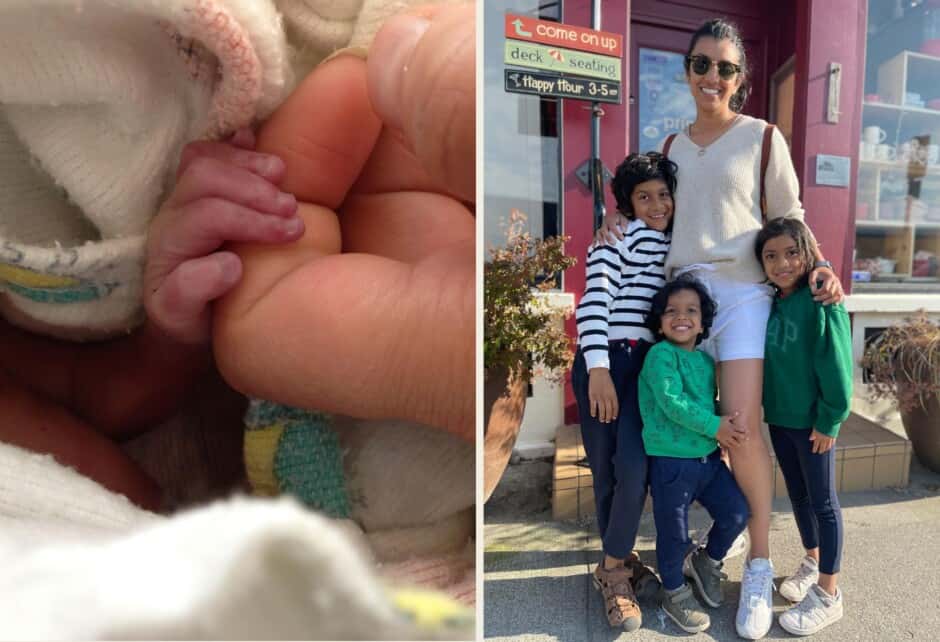
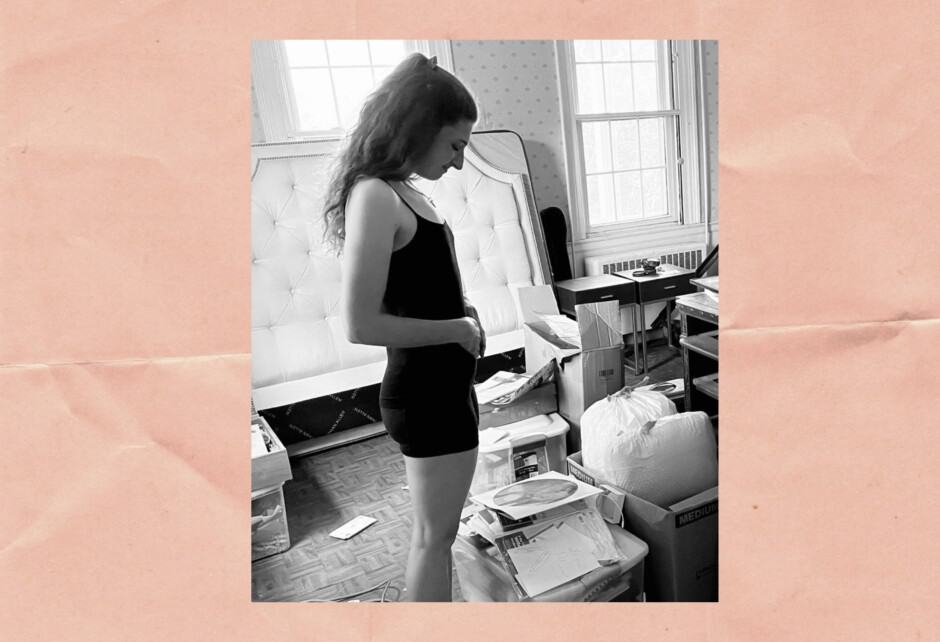
i’m so terribly sorry for your loss. similar to you – i lost my mom in my early 20’s then also lost my first child, a boy, during my 8th month of pregnancy. it was by far the most difficult thing i had ever been through. a therapist said once to me that when we lose our parents we lose the past but losing a child we lose the future….thank you for sharing your story and for starting such a thoughtful organization…..and if you’re so inclined i found Elizabeth McCraken’s book, “An Exact Replica of a Figment of My Imagination” to be so healing.